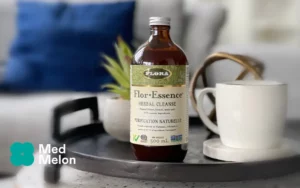Scientific Names of Elderberry Fruit:
Sambucus nigra L. [Fam. Caprifoliaceae]
Forms:
Elderberry Juice or Syrup; Elderberry, dried whole berries
Traditional Usage:
– AIDS
– Antibacterial
– Anti-inflammatory
– Antioxidant
– Antiviral
– Blood Purification
– Breathing Disorders
– Catarrh (gastrointestinal or respiratory mucous)
– Cellular Regeneration
– Cleansing
– Colds
– Cough
– Detoxification
– Diarrhea
– Diuretic
– Fever
– Flu
– HIV Infection
– Laxative
– Neuralgia
– Sciatica
– Sore Throat
– Tonsillitis
– Urinary Tract Problems
– Vascular Disorders
– Vitamin Deficiency
Overview:
Black elderberries, Sambucus nigra L. [Fam. Caprifoliaceae], were traditionally used as a laxative, diuretic, cleansing tonic and treatment for catarrh (mucous of respiratory and digestive tracts). Traditionally, elderberry juice has also been used to treat colds, coughs and upper respiratory infections. Recent clinical studies performed by Dr. Madeleine Mumcuoglu in Israel, proved that elderberry fruit was effective in combating the common flu virus. Sambucol, an extract from black elderberries, was shown to be effective in vitro against 10 strains of influenza virus. In a double-blind, placebo-controlled, randomized study, Sambucol reduced the duration of flu symptoms to 3-4 days. The study was done during a flu outbreak in Panama and it found that there were significant improvement of the symptoms, including fever, in 93.3% of the cases within 2 days, whereas in the control group only 91.7% of the patients showed an improvement within 6 days (p <0.001). A complete cure was achieved within 2 to 3 days in nearly 90% of the elderberry-treated group but only within 6 days in the placebo group (p < 0.001). The researchers concluded that considering the efficacy of the extract in vitro on all strains of influenza virus tested, the clinical results, its low cost, and absence of side-effects, elderberry could offer a possibility for safe treatment for influenza A and B. It was also concluded that elderberry extracts activate the immune system in many ways that may be beneficial for AIDS patients and others at risk of developing infections. The lectins and anthocyanins present in elderberry help protect cells from free radical damage, slow down the aging process, and strengthen the immune system. This gives the body the opportunity of fulfilling its normal activities of digestion, detoxification and regeneration. In folk medicine, freshly pressed elderberry juice is also used specifically against sciatica and neuralgia.
Active Ingredients:
Elderberry Fruit Constituents: 7.5% Sugar (glucose and fructose); the flavonoid glycosides rutin, isoquercitrin, and hyperoside; 3% tannins; the anthocyanin glycosides (0.2-1%) sambucin, sambucyanin and chrysanthemin (= cyanidin 3-rhammoglucoside, 3-xyloglucoside, and 3-glucoside, respectively), and as diglycosides the 5-O-glucoside derivatives of sambucyanin and chrysanthemin; ca. 0.01% essential oil with 34 identified aroma compounds. The major protein of black elderberry fruits is a lectin, called Sambucus nigra agglutinin IVf or SNAIVf. The berries and flower blossoms also contain vitamin C, beta carotene, B1, B2, B6, calcium and phosphorus as well as mucilage, cyanogenic glycosides and the anti-inflammatory agents ursolic and oleanolic acids. The seeds contain: cyanogenic glycosides including sambunigrin, prunasin, zierin, and holocalin; plant acids (citric acid and malic acid); ca. 0.03% vitamin C.
Suggested Amount:
For treatment of feverish cold and flu: Unless otherwise prescribed, 3-4 teaspoonfuls (ca. 10g) of elderberry fruit are placed in water (ca. 150ml) and slowly brought to a boil for a short time and then allowed to stand for 5-10 minutes and passed through a tea strainer. A cup of the freshly prepared tea is drunk several times a day. The tea can be sweetened and lemon added to taste if desired. For cleansing and fasting, take 1-2 tablespoonfuls of elderberry syrup per day with plenty of liquid (1:10).
Drug Interactions:
None known
Contraindications:
None known
Side Effects:
Taking the raw or insufficiently cooked fruit of any species of elder causes nausea and vomiting due to the presence of cyanide within the fruit and seeds. Severe cyanide poisoning can lead to death so this is not a safe berry to eat raw.
References:
Duke, J. 1997: The Green Pharmacy, The Ultimate Compendium of Natural Remedies from the World’s Foremost Authority on Healing and Herbs. pp. 168; 179-180; 242; 329-330; 514. Rodale Press.
Vivian B, Tal H, Inna K. 2001. The effect of Sambucol, a black elderberry-based, natural product, on the production of human cytokines: I. Inflammatory cytokines. Eur Cytokine Netw. 2001 Apr; 12(2): 290.
Wichtl M (ed). 1994. Sambuci fructus – Elder fruit In Herbal Drugs and Phyto-pharmaceuticals. (English translation by Norman Grainger Bisset). CRC Press, Stuttgart, pp. 449-450.
Youdim KA, Martin A, Joseph JA. 2000. Incorporation of the elderberry anthocyanins by endothelial cells increases protection against oxidative stress. Free Radic Biol Med. 2000 Jul 1; 29(1): 51-60.
Zakay-Rones Z, Varsano N, Zlotnik M, Manor O, Regev L, Schlesinger M, Mumcuoglu M. 1995. Inhibition of several strains of influenza virus in vitro and reduction of symptoms by an elderberry extract (Sambucus nigra L.) during an outbreak of influenza B Panama. J Altern Complement Med. 1995 Winter; 1(4): 361-9.




